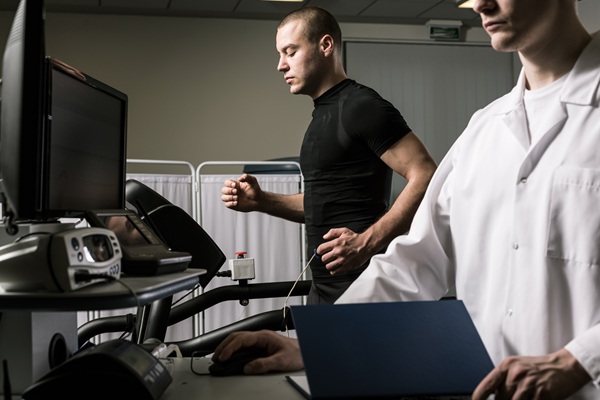Diagnosing and Monitoring Heart Disease With an Echocardiogram

An echocardiogram, also informally known as an echo, is a test that creates images of a person’s heart. It does this by sending sound waves into the heart to map the area. Performing one allows a cardiologist to examine how well the heart functions, and it can be used to detect and diagnose heart disease.
Diagnosing heart disease with an echocardiogram
The type of echocardiogram a doctor orders depends on the information a cardiologist needs to extract. Some of the reasons why one of these tests might be ordered include the following:
- To examine the chambers and valves of a patient’s heart
- To detect heart defects before birth
- To examine if a patient’s symptoms are being caused by heart disease
Some of the different types of echocardiograms that can be used to diagnose and treat heart disease include:
Transthoracic echocardiogram
This is the most commonly used type of echocardiogram. It uses ultrasound waves to map images of areas of the heart like its four valves and chambers. It can also be used to examine blood vessels close to the heart.
During the procedure, a sonographer spreads a gel on a transducer and presses it firmly against the patient’s skin. The ultrasound sound waves are aimed at the chest to create an image. The transducer maps the heart by recording sound echoes from your heart. A computer then converts these sound waves into images on a monitor.
An enhancing agent might be injected into the patient’s bloodstream if the view of their heart is being blocked by their lungs or ribs. The enhancing agent makes the heart more visible on a monitor.
Transesophageal echocardiogram
A transesophageal echocardiogram is typically ordered when a doctor wants more detailed images of a patient’s heart than the standard echo provides.
During the procedure, the patient’s throat is numbed and a transducer is guided down the throat into the esophagus, the tube that connects your mouth to your stomach. The transducer is then used to record sound waves as they bounce off the heart. A computer converts the information into images on a monitor.
Doppler echocardiogram
This uses the changes to the pitch of sound waves that occur as they bounce off blood cells in the heart. These doppler signals can be used to measure the direction and speed of blood flow in the heart.
Doppler techniques are usually used with transesophageal and transthoracic echocardiograms. Traditional ultrasound techniques cannot be used to examine blood pressure and blood flow problems in the arteries. The blood flow images shown on the monitor are colorized to make it easier for the cardiologist to detect issues.
Stress echocardiogram
These tests are typically ordered to detect heart problems that only occur during physical activities. A stress echo can be used to diagnose coronary artery problems, but it cannot be used to check for blockages in a patient’s heart.
A stress test involves taking images of a patient’s heart before and after physical exercise. Patients who are not able to exercise might be injected with a medication that makes their heart pump as hard as it would if they were exercising.
Get your heart checked out
Do you think you might be due for an echocardiogram? Contact our office today to set up an appointment with a cardiologist.
Get more information here: https://boyntonbeach.floridapremiercardio.com or call Florida Premier Cardiology at (561) 229-1411
Check out what others are saying about our services on Yelp: Read our Yelp reviews.
Recent Posts
According to the Centers for Disease Control and Prevention, heart disease is the leading cause of death for adults in the United States. Therefore seeking chest pain treatment is crucial, especially for those at high risk for heart disease. However, chest pain can result from various health issues, so how does one know when it…
A cardiac stress test is a diagnostic tool to evaluate how well the heart performs under physical stress. Cardiologists use this test to detect underlying cardiovascular conditions, monitor treatment progress, or assess the risk of future heart complications. Cardiac stress tests are essential in the early detection and management of heart disease.A cardiac stress test…
Peripheral arterial disease affects blood flow in the arteries, most commonly in the legs. It develops due to plaque buildup in the arteries that causes them to narrow and restrict circulation, possibly leading to discomfort, difficulty walking, and other serious complications. Recognizing the symptoms early and exploring treatment options can help improve the quality of…
Receiving cardiovascular treatment is a critical step in managing heart health, but recovery and long-term are equally vital to ensure long-term wellness. Whether the treatment involves medication management, interventional procedures, or surgery, maintaining a relationship with the cardiologist and following their recovery guidelines is crucial. A structured follow-up plan allows patients to maintain the benefits…


